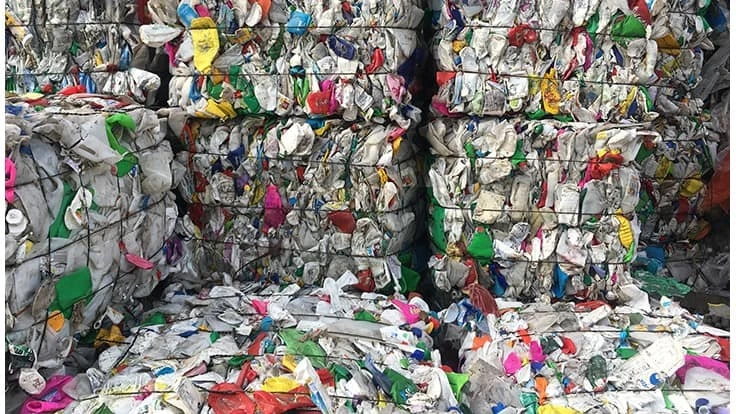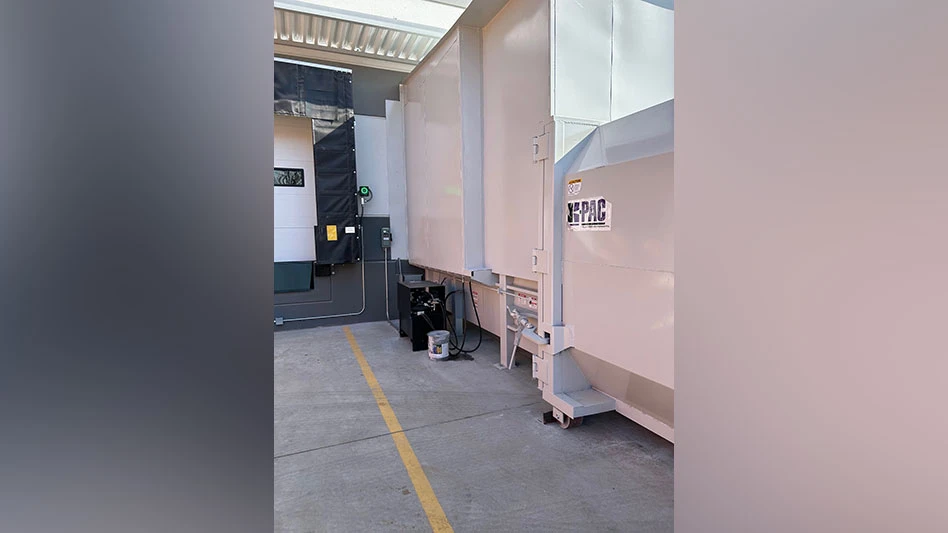
Photo by Brian Taylor.
COVID-19 virus-related restrictions in Asia and around the world have greatly reduced plastic recycling activities on that continent, according to Steve Wong, president of the China Sustainable Plastics Association (CSPA).
Wong, also CEO of Hong Kong-based Fukutomi Recycling Ltd., writes in a late April report that government actions, including lockdowns and suspended economic activities, have “severely affected global manufacturing industries and the use of raw materials, causing dramatic effects on the plastic recycling industry.”
He writes, “The extended city lockdowns [in] many of the main recycling countries in Asia, such as Malaysia, Vietnam and India—along with social distancing restrictions in many Asian cities—has resulted in only 30 percent of recyclers continuing operations." Of the companies still running, Wong says many are “only running at 50 percent of their processing capacities.”
Wong indicates “financial distress” has ensued for many companies, while a second form of stress has come from the “scaling down of carrier operations by shipping companies.” Globally, says Wong, “insufficient container forwarding capacities, longer transit times due to blank sailings, and drastic increases in freight rates” have all been observed.
The combination of increased transportation costs and a slower flow of goods means “the global plastic scrap trade is now facing a very difficult time,” writes Wong, who also serves on two committees for the Brussels-based Bureau of International Recycling (BIR).
Providing one more challenge, a severe decline in the price of oil has driven down the value of primary plastics, “causing a disastrous trend in recycled plastic material prices,” adds Wong. “In the absence of normal market liquidities, buyers now lack interest in purchasing materials and remain on the sidelines.”
Imposed lockdowns and suspended factory operations have reduced supplies of industrial scrap, “while the shortfall cannot be covered by other sources,” says Wong. Safety concerns are one reason for that. “The fear that the COVID-19 virus can live on solid materials for up to four days and for at least four hours has scared away [some] upstream sorting operations and severely affected mixed rigid plastic supplies.”
In the longer term, plastic recyclers continue to monitor how environmental concerns about plastic’s use as a packaging material will impact their prospects. “A reducing trend in plastic scrap supplies is not only a short-term phenomenon but a persistent one, given the global consensus to reduce and restrict the use of plastics. On the other hand, the use of recycled content in products or packaging may become a global policy, as directed by the United Nations. The price correlation between prime materials and recycled materials may be distanced in the future, depending on supply and demand.”
Predicts Wong, “As the tendency of using more recycled content prevails, recyclers who are able to meet the quality specifications of brand owners in product applications are going to be more successful in the future.” He adds, though, “The current range of qualified scrap items as demanded by brand owners is not wide enough, and many recyclers find it difficult to satisfy their needs. This results in a long-term technical issue on our industry to be solved by R&D in raising more recyclables that can meet the desired standards of brand owners. This is undoubtedly our long-term direction.”
Sponsored Content
Still relying on manual sorters?
Let AI do the heavy lifting. Waste Robotics delivers reliable, high-performance robots tailored for complex waste streams. They require minimal maintenance, are easy to operate, and are designed to boost your recovery rates. Smarter sorting starts with the right partner. Waste Expo Booth #1969 & REMA #2843
Click here to see our robots in action!A preview to the rest of the world on how reopened economies will affect plastic prices may be available in the People’s Republic of China. “As China has gradually lifted city lockdowns and factories resume productions, prime material prices of polypropylene and certain styrenics have gone up by between $30 to $80 per ton within the last two weeks,” writes Wong in late April.
Additionally, he says, the restart of factories “may be helpful in the collection of receivables by recyclers.” Concludes Wong, “Nevertheless, the light at the end of the tunnel is yet to be seen as city lockdowns in China’s export markets are still in effect due to COVID-19.”
Get curated news on YOUR industry.
Enter your email to receive our newsletters.
Latest from Recycling Today
- Enfinite forms Hazardous & Specialty Waste Management Council
- Combined DRS, EPR legislation introduced in Rhode Island
- Eureka Recycling starts up newly upgraded MRF
- Reconomy Close the Gap campaign highlights need for circularity
- Nickel carbonate added to Aqua Metals’ portfolio
- EuRIC, FEAD say End-Of-Life Vehicle Regulation presents opportunity for recyclers
- Recyclers likely to feel effects of US-China trade war
- BCMRC 2025 session preview: Navigating battery recycling legislation and regulations









